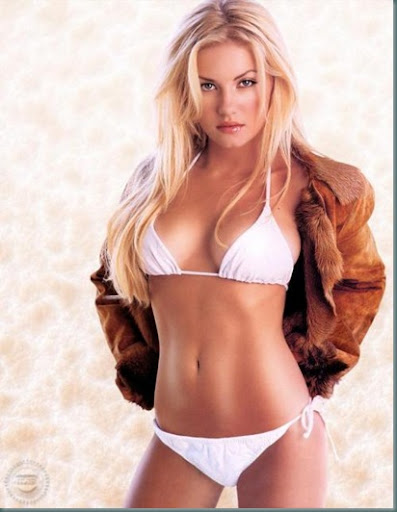(some of which hit me only after I'd finished watching.)
(if nothing else, I owe it for showing me, even inadvertently, how much "odd" sounds like "Awed.")
One of the thoughts that I had as I was watching Stranger Than Fiction is that if I ever do get to be the writer/director I want to be, I might be the only one who would ever want to cast Adam Sandler, Jim Carrey and Ferrell together in a "dramedy,"
What these men have in common besides being star comics is this: I've had little or no interest in seeing most of the dumb-ass shitty Jerry Lewis impressions and fart jokes that have proved so lucrative for them.
To a man, I prefer them in works where they get to do some dramatic acting: Sander in Spanglish, Carrey in The Truman Show, now Ferrell here.
What I have an interest in--among other things--is high-quality performances, and in Stranger Than Fiction Ferrell delivers a choice example.
By the end I had come to care about his hero--who knew he could play a recognizably believable human?
The story is about a man, Harold Crick (Ferrell), an IRS agent who hears a voice in his head. Not a voice telling him what to do, but describing what he is already doing with a better vocabulary than he possesses himself.
He responds to this about as well as could reasonably be expected. After consulting with a couple of doctors (one played in a delightful cameo by Tom Hulce, a worthy actor too long missing from features) he seeks out a literature professor.
The professor is played by Dustin Hoffman, giving an admirably deadpan, underplayed and truly supportive performance.
Harold is the central character in a novel she has been writing but unable to finish. And now (we know but they don't), her publisher has sent an assistant, Penny, to hurry her along.
Penny Escher: Sitting in the rain isn't going to write a book.
Karen Eiffel: That illustrates exactly how much you know about writing books.
This presents a problem for Harold, because the one thing the central characters of Eiffel’s novels have in common is this: All of them die at the end.
Harold, like any of us sensibly, doesn't want to be in a tragedy, he wants to be in a romance.
And he may have just found the beginnings of a love story with a woman he is meant to be auditing, played by the picturesque Maggie Gyllenhaal; named Ana, weirdly enough for me.
This part of the story has a warmth to it comparable to the late and lamented Adrienne Shelly's Waitress, and not only because like Keri Russell in that film, Gyllenhaal here is a baker.
Some might call it mushy, but only if they haven't had a really good chocolate chip
Besides, Harold doesn't exactly sweet-talk his Betty Crocker:
Ana Pascal: You were staring at my tits.
Harold Crick: No, I'm sure I wasn't. And if I was, it was as a representative of the United States Government.
Still, for most of it, I was preparing to give my review of Stranger Than Fiction as "Undeniably entertaining, but lacking a certain something in emotional engagement." You know--like They Might Be Giants' music.
But damned if it didn't sneak up on me. So really, I'm serious, how did this get made? No mutants coming alive in museums, riding around in talking, driverless cars as they try to crack an old Spartan code...how the hell did this movie get made and distributed by a major studio?
My guess? Will Ferrell. He must have used some of the juice he has from Elf, Talladega Nights: The Ballad of Ricky Bobby and the successful "Frat Pack" movies.
And good on 'im (if I'm right--it could just as easily have been Marc Forster, director of Oscar bait, which sold the studio).










No comments:
Post a Comment